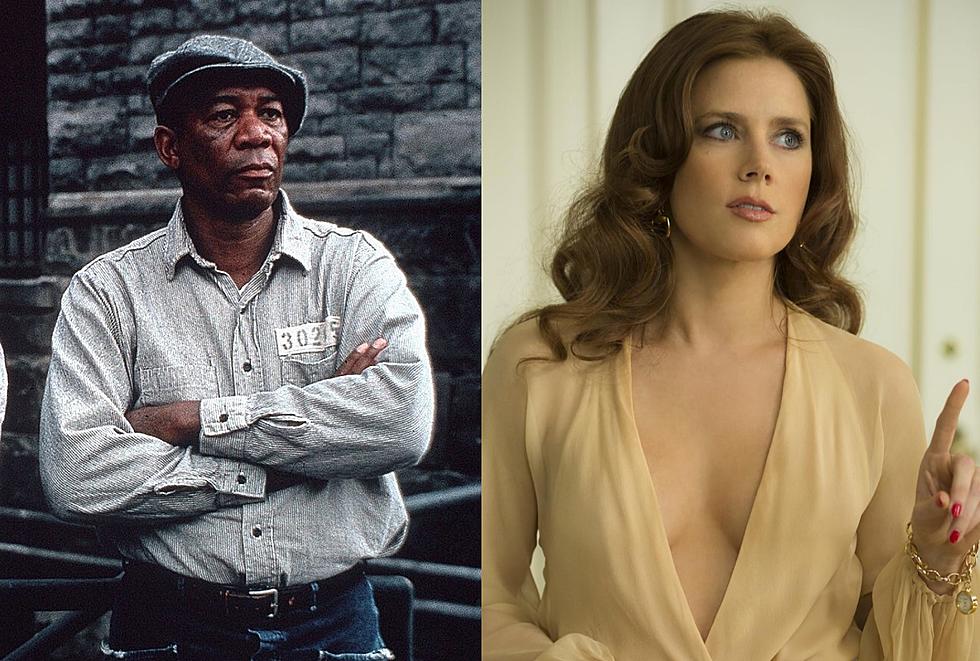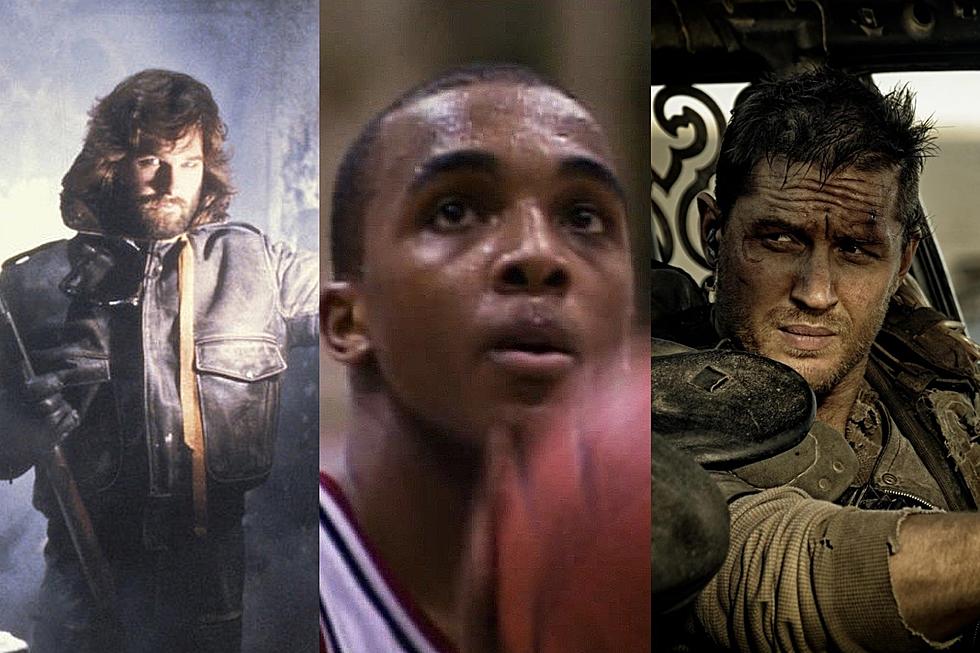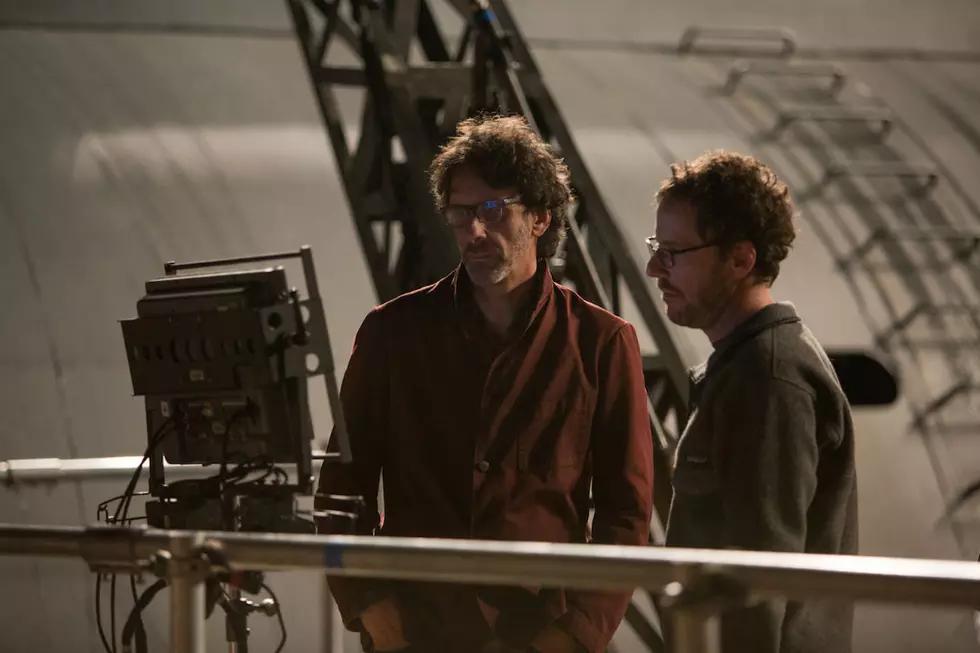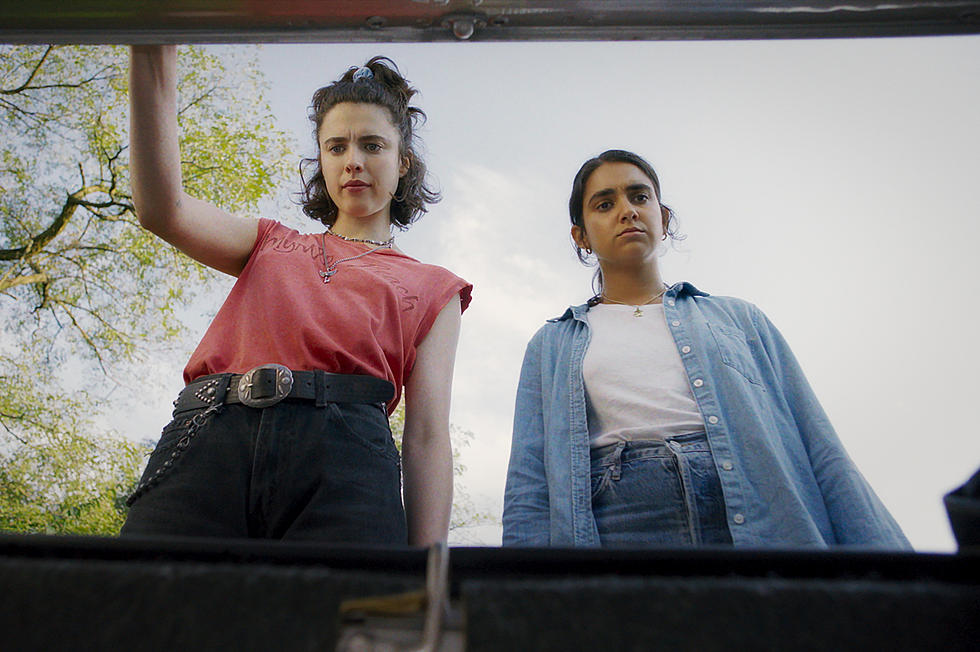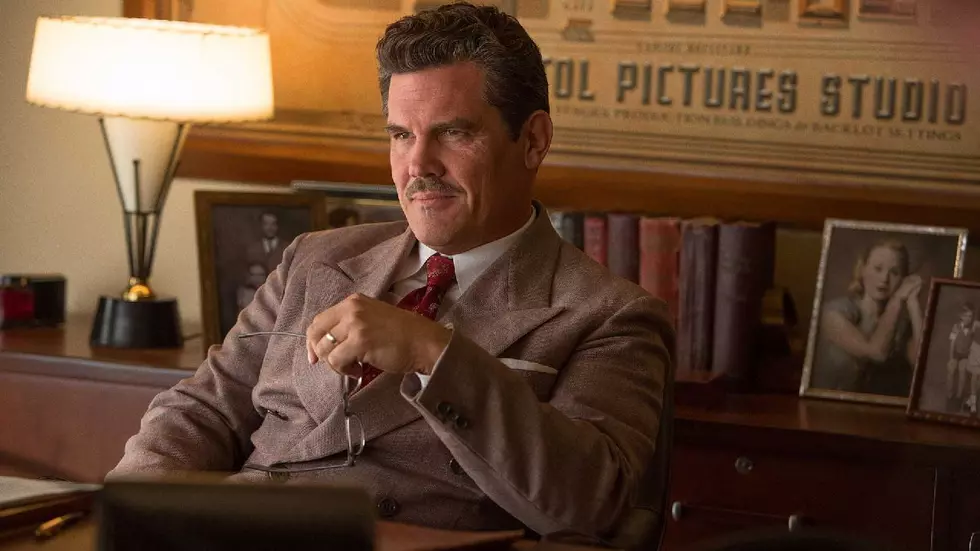
Josh Brolin on ‘Hail, Caesar!’ and Marvel’s Modern Studio System
Josh Brolin answers the phone with a whisper.
“Hello.”
I laugh and ask if we’re going to do the entire interview in a whisper. “I just want to make things as creepy as possible,” Brolin chuckles.
Brolin’s unusual greeting wasn’t creepy, but it certainly was a surprise — something the actor has become particularly good at delivering onscreen. After years working as (in his his words) a “blue-collar actor,” his career got a major boost from the Coen brothers’ cast him in their Oscar-winning thriller No Country For Old Men. Although No Country made Brolin a movie star, he’s continued to make unpredictable choices, starring in films as diverse as W. (where he gave an impressively nuanced performance as the 43rd President of the United States), Milk (which earned him his first Oscar nomination), and Inherent Vice (just watch this). In between, he even makes appearances as Thanos, the ultimate bad guy in the Marvel Cinematic Universe (after several cameos, he’ll play a major role in Avengers: Infinity War in 2018).
Brolin reunited with the Coens for their remake of True Grit, and now they’re back together again for Hail, Caesar! a hilarious comedy about 1950s Hollywood. Brolin plays Eddie Mannix, an executive at Capitol Pictures, a major studio with several major problems that need fixing. Chief among them: Capitol’s biggest star, Baird Whitlock (George Clooney) has been kidnapped, and a mysterious group known as “The Future” wants $100,000 for his safe return.
With the “creepy” formalities out of the way, Brolin and I got down to business, talking about how he created his version of Eddie Mannix (who’s loosely based on a real figure of Hollywood history), whether he thinks he would have been happy working as an actor in the movie industry of the 1950s, and if he thinks comparisons between Marvel Studios and the old studio system of the Hail, Caesar! era are valid.
I know Eddie Mannix was a real guy in 1950s Hollywood, but tell me where your Eddie Mannix came from. What was the inspiration for the way he looks and walks?
The walk is how I imagined the real Eddie to be, based on the pictures I saw of him. He’s got a similar simian build to me, you know? Kind of that caveman way that he presented himself and displayed himself. I mean he was a pretty brutal guy from what I read. I loved that aspect of it. Then we liked the [idea of a] mustache, we got into that. We looked at Walt Disney, we looked at Gable. We thought about going for a thinner mustache but then decided that was too “actor-y.” They meticulously groomed that mustache every other day, or even every day sometimes. We permed the hair. You grow more specific as time goes on, just out of panic.
What about the voice?
Listening to Abbott and Costello; Bud Abbott, he was from New Jersey. I listened to a lot of people from New Jersey, with the help of [dialect coach] Kate Wilson in New York. We listened to a lot of different accents that were good guides to what I wanted to do. Then you listen to Esther Williams films, and you listen to the cadence. You see how far you want to go — you don’t want it to be as impersonal as they are in the ‘50s. A lot of those movies back then, you listen to them and they’re so impersonal sounding. I didn’t want Eddie to come off too impersonal. Diplomatic was okay, just not impersonal.
You’ve worked with the Coens on comedies and dramas. Is there any difference in their process from one to the other?
Comedies are much less fun with them.
Really?
No. We have fun. We always have fun. But comedy, I think, is a much harder thing to pull off, because it’s about timing. It’s about the construction of it. It’s much more specific. Then on top of that you have this kind of cadence that almost feels Shakespearean. It’s not the typical type of dialogue. Like, I just did this movie with Jody Hill [The Legacy of a Whitetail Deer Hunter] where the dialogue’s very typical, and it was very difficult for me to learn for some reason. Doing Inherent Vice or Hail, Caesar! that kind of density of that dialogue comes much easier to me, just because it sounds so f---ed up and weird. [laughs] It’s just really fun stuff to inhale.
And you also have to calibrate how to be the straight man surrounded by broader, sillier characters, which isn’t easy to do.
Which I’m happy about. I just saw the movie recently and I was really happy about that. If I was doing a caricature — not that other people are doing caricatures, but the over-exaggerated version of that guy would take away from the movie. It’s like a TV series with guest stars. The guest star can come in and do enormous stuff, but as the star of the series, you want there to be some kind of foundation that you can ride and keep things grounded.
So the film is set in the 1950s at “Capitol Pictures,” which was also the name of the movie studio in Barton Fink, which is set a few years earlier. Do you think Eddie Mannix might have done some fixing for Barton Fink back in the ’40s?
I never even put the two together or even realized that it was Capitol Pictures.
Yeah. I was wondering if perhaps there’s a secret Coen Brothers Cinematic Universe.
Well it sounds good! It sounds mythological, which I actually like. But the reality of it is it’s much more mundane than that.
Would you have wanted to work as an actor during the Hail, Caesar! period or do you think you’d be happier where you are now?
I appreciate where I am. Now especially, for a guy who worked 20 years as a kind of a blue-collar actor and then was able to — especially working with the Coens for the first time — I had, not even a resurgence, just a surge of a career in my 40s. It’s been fun. I don’t know if that would have happened back in the day, when they were cultivating movie stars and if that didn’t happen in a couple years you were thrown to the wolves. It was a very different time back then.
My dad experienced it a little bit and I got to talk to him a little bit about that. Being under contract and what that meant; “We’re gonna send you to dance school, and we’re gonna send you to voice school.” It was all kind of controlled by them. Whereas I don’t really know that system.
Is that what you perceive to be the biggest difference between the two eras?
Yeah, and also that these guys from back east who were used to making $40-$50,000 a year are coming to Hollywood and making movies and making the equivalent of $250 million a year. That just doesn’t happen now because it’s corporate; it’s not individualized like that. And movies for corporations are probably the smallest piece of their pie. Pepsi or Sony ... you know what I’m saying?
Absolutely.
They sell more video cameras — and make more money selling video cameras — than making films. A movie brings in $1 billion, let’s say. But then televisions bring in $7 billion or $17 billion or whatever.
The one company you often hear compared to that old studio system is Marvel. They have these powerful producers calling the shots, overseeing big production slates, with actors under contract for lots of movies. And they have a clear house style through all their films. You’re a Marvel guy. Do you see the comparison?
Yeah. I mean now that you mention it, sure. I’ve thought about it before. The thing I think is interesting is whatever Marvel is doing, actors want to be involved with. You have a lot of very good actors like Mark Ruffalo, et cetera, who want to be involved. They seem to beat to their own drum. And that’s very much appreciated even though they are a corporation.
I remember talking to Kevin Feige and Louis D’Esposito — who I’ve known since he was a first A.D. on Hollow Man years and years ago — and they talk about how they go to Palm Springs and they’ll rent a house and barbecue and they’ll just sit around and talk about Thanos or whatever characters could meet up and go through whatever trajectories. I mean they’re really, really informed. And they have acute imaginations and great curiosity and fascination around storytelling. I don’t know if that was the case back then, but it’s a really refreshing thing to be around. It’s not just about money, although ironically they’re doing extremely well. It’s about the art, the storytelling, and knowing that the better storyteller is going to make the most money ultimately. If you can keep an audience invested, that’s the goal.
The Coens have actors they work with over and over again, and sometimes they tend to cast actors in the same sorts of parts; George Clooney, for example, always play idiots. Do you see anything that connects all the characters you’ve played for them?
No, thankfully. I’ve kind of done three and a half parts for them; I did Llewelyn [from No Country For Old Men], I did Tom Chaney [from True Grit], I did this one, and then I did a short that they did for the 60th anniversary of the Cannes Film Festival, which was more comedic. But no, I don’t see a connection, and I’m very happy about that. I don’t know why — not that I question it, because I like working with them, and I’d be very satisfied to work with nobody but them for the rest of my career — but I’m always kind of momentarily awed by why they keep hiring me.
I think it’s because you’re doing a good job.
Well good. I’m glad people are responding to this film, because when we were doing it, we had no idea. I remember we were doing No Country for Old Men, and we were waiting to do another take, and they were tweaking the lighting or something, and we were just kind of shuffling our feet around. And Ethan went “Ugh.” And I went “What?” And he goes, “Oh, nobody’s going to see this movie,” and walked away.
[laughs]
I’m like “You can’t say that in the middle of making a film, man!” It doesn’t do anything for morale being out in the middle of the desert. But I appreciate the authenticity of that very much. There’s not a lot of pretense there, and I hope they never have it because I think it might be ruinous for them.
Hail, Caesar! opens in theaters on Friday.
More From ScreenCrush


